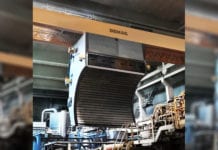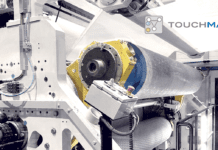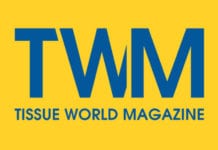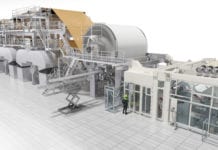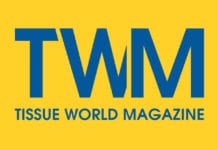(PPI Asia) – Asia Pulp & Paper (APP) has rolled out an aggressive expansion plan that will see it leapfrog Kimberly-Clark, SCA Hygiene Products and Georgia-Pacific to become the world’s top tissue producer by 2015.
Following last year’s astonishing announcement it would build 42 tissue paper machines with a whopping combined capacity of nearly two million tonnes/yr in China, APP has unveiled plans to erect 15 large tissue machines with a combined capacity of 900,000 tonnes/yr at two of its mills in Indonesia.
An APP senior executive said that 14 out of the 15 units, all having a capacity of 60,000 tonnes/yr, will be installed at its Perawang mill on the island of Sumatra.
The remaining PM will go to its Jambi site, also in Sumatra.
He added that the company has so far ordered six of the 5.6 m-wide PMs from A Celli for the Perawang facility.
Construction work at the site has kicked off, paving the way for their installation.
The first PM is slated to come on stream in November, followed by the start-up of the second in December.
The rest of the four A Celli machines are planned to be commissioned in January, February, March and May next year, said the contact.
APP is still negotiating with suppliers for the other nine machines.
The one to be erected at the Jambi plant will be decided on next, as its startup is scheduled for June 2014.
The remaining eight PMs in the pipeline for the Perawang site are expected to come online between mid-2014 and 2015.
The start-up of the 15 PMs will boost APP’s total tissue capacity in Indonesia from 584,000 tonnes/yr now to 1.484 million tonnes/yr by the end of 2015.
In China, the company is moving on with the previously announced expansion scheme. Out of the 42 planned new PMs, two 60,000 tonne/yr A Celli machines were commissioned at its Haikou complex in Hainan province in February and March, which takes the firm’s total tissue capacity in the country to 892,000 tonnes/yr.
The remaining 40 PMs are planned to be installed at APP China’s other sites, and are expected to come on stream in the next three years.
Their commissioning will bring the firm’s total tissue capacity in China to 2.764 million tonnes/yr.
Presently, APP’s total tissue capacity reaches 1.476 million tonnes/yr.
It is the fourth largest tissue producer in the world after Kimberly-Clark (3.777 million tonnes/yr), Georgia-Pacific (3.457 million tonnes/yr) and SCA Hygiene Products (2.525 million tonnes/yr), according to RISI World Tissue Capacity Report 2012.
If APP stays on course to build the remaining machines as planned, its total tissue capacity will amount to 4.248 million tonnes/yr in 2015, overtaking the existing top three and becoming the world’s top tissue producer.
The capacity report forecasts that Kimberly-Clark’s global tissue capacity will dip slightly to 3.735 million tonnes/yr by 2015.
That represents a shortfall of 513,000 tonnes/yr on APP’s planned 4.248 million tonnes/yr.
This means that even if some of the planned APP machines do not start up as scheduled due to late deliveries of equipment, construction delays or labour shortages, which are not uncommon problems in China and Indonesia, APP is still likely to become the world’s leading tissue manufacturer in three years time.
In-house virgin fibre edge: APP’s in-house fibre supply is a key factor behind the ambitious tissue expansion.
The APP executive pointed out that the firm is now essentially self-sufficient in pulp and has hardly any need of purchasing it from the market.
The Perawang and Jambi mills are both fully integrated, having a combined bleached hardwood kraft (BHK) pulp capacity of around 3.5 million tonnes/yr, including both wet and dry pulp.
The Haikou complex, also fully integrated, can churn out 1.8 million tonnes/yr of BHK pulp.
The contact said the firm will continue to carry out an ongoing debottlenecking programme to upgrade the pulp lines at the Perawang facility, with the target of boosting its BHK capacity from the current 7,500 tonnes per day to 8,000 tonnes per day in the near future.
APP’s bleached softwood kraft (BSK) pulp furnish is mainly imported from North America and Europe. Much of the pulp is produced by Paper Excellence, which has acquired several pulp mills in the past few years.
Paper Excellence has bought five pulp mills in Canada: the 270,000 tonne/yr BSK Pictou facility in Nova Scotia; the 330,000 tonne/yr Prince Albert BSK facility and the 400,000 tonne/yr Meadow Lake chemi-thermomechanical pulp mill, both in Saskatchewan; and the Mackenzie and Howe Sound mills, British Columbian properties that can produce 235,000 tonnes/year and 400,000 tonnes/yr of bleached softwood kraft pulp respectively.
Paper Excellence’s French affilliate, Fibre Excellence, runs two pulp mills it acquired from Tembec: the 305,000 tonne/yr Saint-Gaudens hardwood kraft pulp facility and a 260,000 tonne/yr softwood kraft pulp plant in Tarascon.
Last month Paper Excellence struck a deal with Tembec to acquire its 270,000 tonne/yr Skookumchuck BSK facility in British Columbia. Pending regulatory approval, the deal is expected to close in the second quarter.
All the tissue machines APP operates in China and Indonesia use virgin fibre as furnish to produce high quality tissue products.
It has occasionally bought bamboo pulp on the market and mixed it with wood fibre for certain products, such as kitchen rolls.
PMs modified: Back at the Perawang site, APP had previously run 17 tissue machines with a combined capacity of 372,000 tonnes/yr.
But the firm recently modified two 20,000 tonne/yr units, converting them to the manufacture of machine-glazed paper, used in packaging of gift, food and fruits.
Each of the machines can produce 12,000 tonnes/yr of the grade after the revamp.























